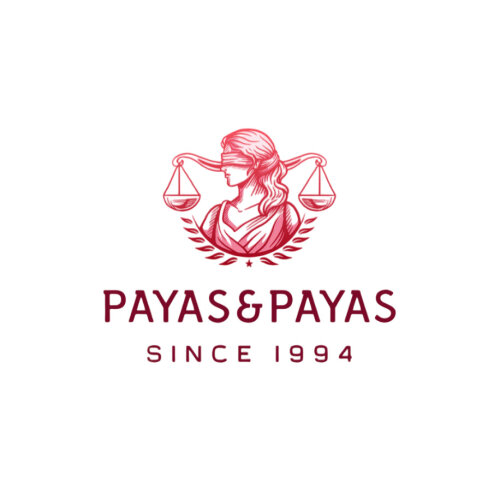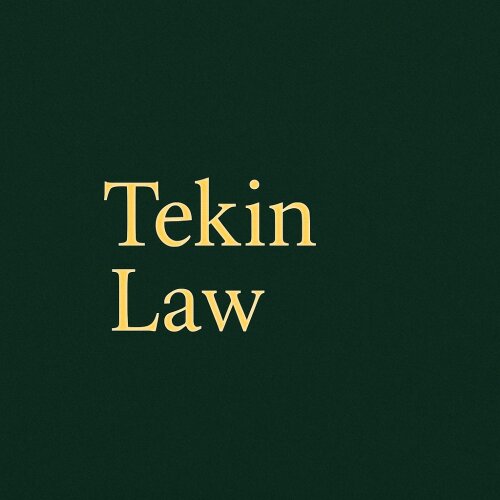Best Franchising Lawyers in Turkey
Share your needs with us, get contacted by law firms.
Free. Takes 2 min.
Or refine your search by selecting a city:
List of the best lawyers in Turkey
Legal guides written by Tekin Law Firm:
- Arbitration in Turkey
About Franchising Law in Turkey
Franchising in Turkey is a growing business model that enables foreign and local brands to expand their operations efficiently. It serves as a pivotal tool for brand expansion across diverse markets. The legal framework governing franchising in Turkey is designed to protect both franchisors and franchisees, emphasizing the importance of clear agreements and mutual understanding. Although Turkey does not have franchising-specific legislation, key commercial and contract law principles apply to regulate franchise relationships.
Why You May Need a Lawyer
Hiring a lawyer in the field of franchising in Turkey can be crucial for various reasons. Potential franchisors may need help drafting comprehensive franchise agreements to ensure clear terms and protection against liabilities. Franchisees often require legal guidance to understand their rights and obligations under these contracts. Additionally, legal advice may be needed to navigate disputes, regulatory compliance issues, and intellectual property rights, which are essential aspects of franchising ventures. A specialized lawyer can provide valuable insights and representation in these areas.
Local Laws Overview
The legal environment for franchising in Turkey is primarily influenced by the Turkish Commercial Code and the Turkish Code of Obligations. These laws provide the basis for commercial transactions and contractual agreements. Key considerations include:
- Contractual Freedom: Parties have significant leeway in determining the terms of their franchise agreements, provided they do not violate mandatory legal provisions or public morality.
- Intellectual Property: Trademark registration is vital, as trademarks are a fundamental component of a franchise's identity.
- Competition Law: The Turkish Competition Authority regulates practices to prevent anti-competitive behavior, which is essential for maintaining fair market conditions.
- Tax Regulations: Understanding local taxation, including Value Added Tax (VAT) and corporate taxes, is crucial for both franchisors and franchisees.
Frequently Asked Questions
1. What are the basic components of a franchise agreement in Turkey?
Key components typically include the grant of rights, duration, fees, the obligation of parties, training and support, marketing, quality control, and termination clauses.
2. Is there a requirement for the trademark to be registered in Turkey for franchising?
Yes, trademark registration in Turkey is highly recommended to protect brand identity and prevent infringement, which is a crucial part of franchising.
3. Are there any specific disclosure requirements for franchising in Turkey?
While there is no unique pre-sale disclosure obligation, transparency and comprehensive understanding of the franchise terms are advisable for both parties.
4. How are franchise disputes typically resolved in Turkey?
Disputes may be resolved through litigation or arbitration. Many agreements prefer arbitration for its confidentiality and efficiency.
5. Can a franchisor impose exclusive purchasing obligations on the franchisee?
Yes, but it must comply with local competition laws to avoid anti-competitive practices.
6. Is it mandatory to establish a local company for franchising in Turkey?
While not mandatory, establishing a local company can facilitate operations and compliance with tax and regulatory matters.
7. How long does it typically take to open a franchise in Turkey?
The timeline can vary based on legal formalities, registration procedures, and business setup requirements, usually taking several months.
8. What are common fees involved in a franchising agreement?
Common fees include initial franchise fees, ongoing royalty payments, marketing contributions, and training fees.
9. Are there any territorial restrictions for franchises in Turkey?
Territorial restrictions can be included in franchise agreements, provided they comply with competition laws and do not create market monopolies.
10. How does the termination of a franchise agreement work?
Termination terms are specified in the agreement, outlining circumstances such as breach, non-performance, or mutual consent, and must adhere to contractual norms.
Additional Resources
For further guidance and resources, consider reaching out to the following organizations:
- The Turkish Franchise Association (UFRAD)
- Istanbul Chamber of Commerce (ITO)
- The Turkish Patent and Trademark Office (TURKPATENT)
Next Steps
If you require legal assistance in franchising within Turkey, consider the following steps:
- Identify Your Needs: Determine whether you need help with contract drafting, negotiation, compliance, or dispute resolution.
- Seek Specialized Legal Advice: Look for a lawyer or legal firm with expertise in Turkish franchise law and relevant experience in the field.
- Consult with Multiple Sources: If possible, get opinions from different legal advisors to ensure comprehensive understanding and options.
- Check Credentials: Verify the qualifications, past work, and client feedback of the lawyer or firm you are considering hiring.
With thorough legal guidance, you can effectively navigate the complexities of the franchise landscape in Turkey, ensuring a successful collaboration for all parties involved.
Lawzana helps you find the best lawyers and law firms in Turkey through a curated and pre-screened list of qualified legal professionals. Our platform offers rankings and detailed profiles of attorneys and law firms, allowing you to compare based on practice areas, including Franchising, experience, and client feedback.
Each profile includes a description of the firm's areas of practice, client reviews, team members and partners, year of establishment, spoken languages, office locations, contact information, social media presence, and any published articles or resources. Most firms on our platform speak English and are experienced in both local and international legal matters.
Get a quote from top-rated law firms in Turkey — quickly, securely, and without unnecessary hassle.
Disclaimer:
The information provided on this page is for general informational purposes only and does not constitute legal advice. While we strive to ensure the accuracy and relevance of the content, legal information may change over time, and interpretations of the law can vary. You should always consult with a qualified legal professional for advice specific to your situation.
We disclaim all liability for actions taken or not taken based on the content of this page. If you believe any information is incorrect or outdated, please contact us, and we will review and update it where appropriate.
Browse franchising law firms by city in Turkey
Refine your search by selecting a city.
















